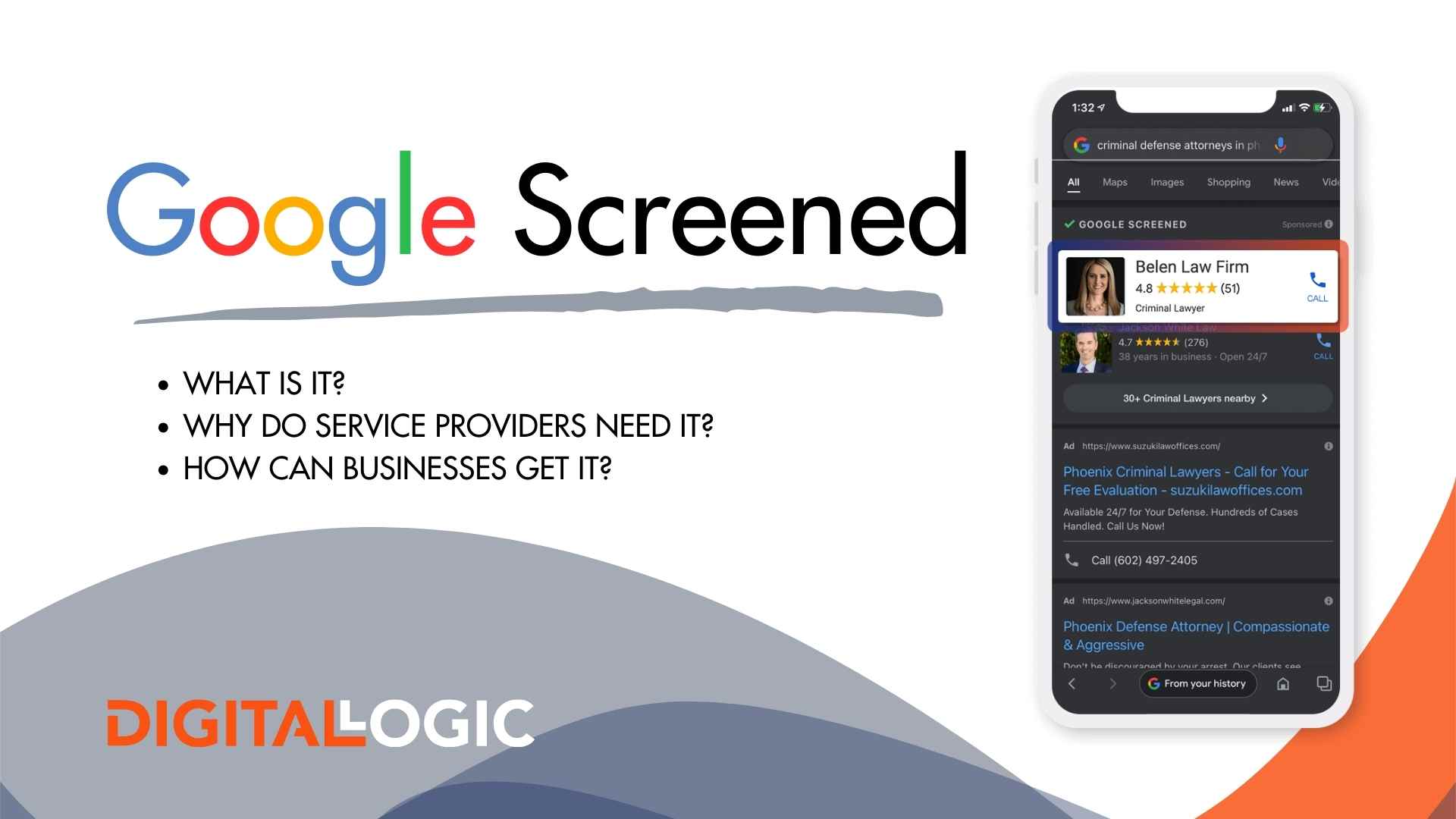As a lawyer, your marketing efforts will focus more on generating a strong pipeline of referrals. This process, however, may not be as easy as simply “being good at what you do.”
Whether you’re a seasoned attorney or considering marketing for a solo practice, legal referral services can help to market your firm.
Besides doing your law firm internet marketing extremely well, it’s important to focus on referral marketing for your law practice. Referred legal client prospects turn into paying clients.
They are the least expensive to obtain and the most likely to convert. You don’t have to go through the pre-screening processes with referred prospects, as this has already been done by the referrer. Moreover, referred clients for your law firm are more likely to be cooperative and also more likely to refer others.
Why Should My Law Firm Use A Legal Referral Service?
Table of Contents
ToggleGoogle wouldn’t be popular if people enjoyed doing countless hours of research to find answers on the internet. People like to have their information on demand; billions of people use Google and other search engines every day.
But even before there was Google (a world without Google? Imagine it!), there were web directories. They are the natural descendants of those now obsolete remnants of a simpler time, the white and yellow pages.
Think of an attorney directory as Google’s bookish older cousin: a place where people go to find information about lawyers, and only lawyers. If you think law firm internet marketing is hard, finding the right lawyer to represent you is even harder, and for the same reasons. There are so many talented lawyers out there that finding the right one for you can be like finding a needle in a haystack.
Consumers will naturally gravitate towards online directories to find goods and services because it does the hard work for them, and attorney directories are no different.
Being present on as many of these directories as you can manage only makes good business sense. It’s one of the fastest, most fool-proof ways for legal lead generation.
How Lawyer Search Engines Can Help Promote Legal Practices
Here is a quick list of ways online attorney directories can help your law firm grow and prosper:

Increase Online Discoverability
If someone is searching for lawyers online, attorney directories are going to be some of the first places they look. If you aren’t listed there, who knows how many potential clients could be passing you by?
They need to know your name to hire you, and a listing in an attorney directory provides them with just that.
Build Quality Organic Traffic
Search index any and all sites on the internet without any checks or balances for quality. Good web directories hire editors to check and maintain high quality and relevance. This helps establish a loyal user base in the directory, which helps establish a loyal clientele for your business.
Improve Law Firm SEO
The goal of law firm SEO is to put your law firm’s website as high in Google’s rankings for as many search results as possible. The fastest way to drum up clients for your law firm is to dominate the front page of Google. But, as competition for that space heats up, it’s not as easy as it used to be.
But Google loves quality attorney directories, and by allying yourself with a few of them, you are essentially giving yourself some extra bites at the apple. It is much easier for an online attorney directory to rank highly on Google, and to take your law firm up with it.
Aside from your ranking, backlinks for your website (links on other websites that take people back to your website) increase your standing with Google. This holds especially true if those websites containing your backlinks come from trusted websites, like attorney directories.
Affordable Advertising for Law Firms
Every bit of advertising is good, especially when it’s cheap. Some attorney directories are free, while others will charge a comparatively small fee. Some will have free options, but give extra features or exposure to firms that pay a fee.
These directories put your name and company information in front of tens of thousands of people for a very small chunk of your budget.
Targeted Advertising for Law Firms
When someone searches an attorney directory, they mostly search for a specific geographic location and a specific area of practice. Within an attorney directory, every single person who sees your listing is going to be searching for the exact services you provide, with hardly any effort from you.
An example of divorce lawyer marketing, let’s say you are a divorce lawyer in Shreveport, Louisiana. The only people who are going to see your listing are people searching for divorce lawyers in Shreveport. Anyone searching for personal injury attorneys in Seattle will not see your listing.
Normally, this level of targeted advertising requires expensive ad campaigns and the addition of multiple relevant keywords, but attorney directories handle it all for you.
Easy to Update
With yellow pages, businesses must wait until a new edition is published to update or modify their listing. With attorney directories, listings can be updated at any time with just a few clicks.
This offers a huge advantage: imagine, for instance, if you changed your law firm’s phone number, or even moved to a new office. If your business were listed in a traditional print directory, you may have to wait a month or even a year to correct the listing, depending on the directory in question. With an online directory, your address or phone number can be changed almost instantaneously.
Better Legal Client Closing Ratio
When a potential client perusing an attorney directory selects your business from among hundreds, maybe even thousands of others, they have already read a description of you and your law firm and compared it to the others in your practice area and geographic reason. They have already partially crossed the threshold of decision-making, and are more likely to actually become a paying client.
What it boils down to is that the more opportunities you give yourself, the more paying clients are going to come your way.
How Does a Legal Referral Service Work?
Every attorney directory works differently. For the most part, directories sort attorneys into categories.
These categories could include:
- Geographic location
- Practice area
- Hourly rates

Almost all lawyer search directories allow potential clients to search with a combination of these factors, meaning that someone could search “family law Miami Florida” in an attorney directory, and the directory would roll out the names of all the family law attorneys in the Miami area.
There are also attorney directories specifically dedicated to helping members of the public find pro-bono legal aid. Others will only help someone find the most affordable or cheapest attorney, while still more will help the public find the top attorney in a particular practice area for their particular geographic location.
The way that attorneys are ranked and organized depends entirely on the directory being used. This is why it is so important to fill in all the information you can when claiming your listing so that your law firm can be listed in every category that applies
What Should I Include in a Lawyer Search Attorney Directory Listing?
Your listing is what potential clients browsing an attorney directory are going to judge you by. For this reason, there are a few things you should always make sure your listing includes:
Consistent Contact Information for Lawyers
This includes your law firm’s name, address, and phone number, otherwise known as NAP. This is especially necessary if your law firm is listed on multiple directories.
Inconsistent NAP across platforms can undermine potential clients’ trust in your firm: imagine looking up a restaurant online and finding multiple addresses listed. You would probably give up on that restaurant. The same applies to any business, even law firms.
Backlinks to Legal Websites
We already talked about the power of law firm SEO, especially back-links from trusted websites. For this reason, adding a link back to your firm’s website in your directory listing will only benefit your rank on Google.
Tip: You can add a tracking link to the end of your website’s URL. That way, you can see for yourself exactly how many people are looking at your website as a direct result of your listing in an attorney directory.
Law Firm Description
Make sure you have a detailed description of your law firm. Be sure it reflects your mission, culture, and values as a business.
Injecting some personality into your listing is advisable, especially if you’re hoping to win over younger potential clients, but stay away from excessive use of contemporary slang or jargon. Be approachable, but still professional.
Multimedia
Including photos and videos on your website gives potential clients a visual taste of your law firm. This also makes your listing more visually appealing.
Attorney Referral Outreach Techniques
Booklets
One proven technique for referrals is booklet sharing. The process is fairly simple: email your list of contacts with links to valuable information, such as digital booklets, and a request to share it with anyone they feel will find it valuable. This process can be simple; it can be automated; it can be inexpensive. Moreover, it can and does work!
The booklets don’t have to be long but need to be long enough to fully cover the topic. Even though you know most of these tasks aren’t available to be done-by-oneself, you want to present the information as such. Most don’t have the time, energy or knowledge to do-it-themselves. You know that; they don’t.
Newsletters
Your newsletter should be entertaining and informative. These should not be used as a one-page ad, so, don’t only talk about yourself or your firm.
Webinars
Most prefer to watch or read to gain information. Pairing a webinar with the booklet satisfies the needs of both types. You can record it once and use it over and over, or publish it so that viewers can play on-demand.
Survey Feedback
You need to know how clients view your firm, and feedback is the best way to do that. The problem comes in with the implementation. You want both qualitative and quantitative data, without running off the client. You want both qualitative and quantitative data, without running off the client, so it’s also a smart move to use a free survey creator.
Once the client completes a form, or whatever action you choose, provide them with copies of your booklet for them to hand out. Again, this isn’t a direct advertisement. It is simply providing information to someone in need.
Online Reviews
Having Google Reviews is a must, as you will still have online leads. Physically asking for a referral will give you more, and doing so at a positive time, in the client’s case, will give you a better shot at a heartfelt review for everyone online to see.
Newsletter
How do you get former clients to continue to pump out referrals, even after time passes? Sending regular newsletters about general topics, such as social security, to continue to help them, and also to remind them that you helped them during a difficult time in the past.

Generating Attorney Referrals From Allied Professionals
Non-Attorney Sources
You’ll want to organize your non-attorney professionals by specialty. If you don’t already have a contact list, you can Google search the profession title “near me”. If you’re in a time crunch, focus on those who seem to have a better market strategy, as those have the potential to be able to help you more.
Referral Letters
You can send out letters tailored to each “specialty list” to request an informal referral alliance with those who are in your non-attorney list. Be sure to include a different marketing tip for each memo, making the relationship start out with a “give” instead of a “take”.
You can take it a step further by requesting you be a direct source of help for the patients or clients of the potential “partner” by offering an informative handout on the information you specialize in.
Meeting with Prospective Law Firm Referral Sources
Letters, by themselves, are not going to give the response you need to be able to start generating referrals. Consider giving those who haven’t responded a follow up call or even a few follow up calls and emails.
At the end of the phone conversation, you can then request an informal meeting, so that you may get to know each other. After all, if either of you is going to refer the other, shouldn’t you at least know if you like them?
You’ll want to gain some general information and background, for both yourself and for the potential future clients, you will refer to them. Find out information, such as their ideal client, so you’ll know what types of clients to send their way.
The more information you know about one another, the more you will both be able to help your clients.
Afterward, you’ll want to send a follow up email confirming the verbal agreement or sending a personalized “thank you” card, again to confirm the agreement.
How to Find Workshops for Attorney Referrals
Look at what profession would be a natural feeder for your firm. Don’t publicly advertise you offer workshops, but instead pursue qualified leads. The more qualified the lead is, for this, the more difficult it may be to convince them you’re doing things differently. Insist that you genuinely want to help their clients and add an additional service to their establishment.
When conducting workshops, the audience gets to hear about what your firm offers and what kind of person you are, but they don’t get their specific questions answered. This is a great opportunity to schedule a consultation. You can offer a free consultation, but make sure you require them to fill out an extensive intake form. That way you know the prospect is willing to work to get the result they want.
Online Reviews
Having Google Reviews is a must, as you will still have online leads. Physically asking for a referral will give you more, and doing so at a positive time, in the client’s case, will give you a better shot at a heartfelt review for everyone online to see.
Newsletter
How do you get former clients to continue to pump out referrals, even after time passes? Sending regular newsletters about general topics, such as social security, to continue to help them, and also to remind them that you helped them during a difficult time in the past.
Sources of Attorney Referrals
For most firms, the best sources of referrals will be one of the following: attorneys in the same specialty but in a different location or attorneys in the same area but with a different specialty.
Referral Letters
Just like with the non-attorney referrals, you may want to send out an informative letter series with a request to be an informal local partner or to form an informal alliance.
Or, you could choose an alternate route and send valuable information, specific to your specialty, but information that could also be used by your potential partner, in a time of emergent need for their own clients, in a pinch.
The key is to provide enough information to get their client out of the pinch, and into your firm. This isn’t stealing the client, as you offer a different service. As a matter of fact, this only extends the client’s loyalty to the lawyer who was able to help, even though the problem presented wasn’t in their specialty range.
In-Person Law Firm Referrals
Lawyers are busy people and sometimes they need to be reminded, several times. They may need to be called and emailed several times until an actual meeting is arranged. Once the meeting is arranged, you or one of your lead attorneys should be the one to attend the meeting.
At the meeting, you will want to gain as much information about each other as possible. It is important to answer general questions you will need the answers to later, such as:
- What does their ideal client look like?
- How should the client reach out? Or will the attorney contact the client?
- How would your potential partner like his or her firm to be described?
- Is there a consultation fee? If so, will the fee be waived for your referrals?
- Do they have any branded handouts they want you to pass along?
You should also be prepared to answer any of the questions your partner feels are important. After the meeting, be sure to follow up to confirm the informal partnership, whether it be by email or sending a thank you letter.
Market for Other Attorneys
Although it may seem counterintuitive to market yourself to other attorneys, and this may be the case if you’re only thinking in the short-term.
The fact of the matter is, lawyers can only specialize in so much. There is bound to be a time when a client reaches out to his or her preferred attorney, only to find, that their case can’t be taken by that firm. They will then trust the referral of that attorney, and because you have educated said attorney, or “nurtured that lead”, the client will more than likely be pointed in your direction.
You want to be known as the expert in your industry. To accomplish this, you must be willing to provide free and valuable information on a consistent basis that appeals, not only to potential clients but other attorneys, as well.
The old saying holds true here, “The more you give, the more you receive.”
Referral-Generating Office Processes
Internal Legal Referrals
What the leaders find valuable, the rest of the office will find valuable. Schedule out time in meetings to talk about referrals. Get your staffed pumped about trumpeting their current stats. Set goals and acknowledge those who meet or exceed them.
Client Referrals
What about the clients? The importance of treating referred clients like VIPs should go without saying. However, it is a step looked over by most firms. Small gestures are often enough to create a great impact. Whether it’s offering priority scheduling, implementing easy-to-use e-signature tools, or following up with non-signers, these little actions speak volumes to the client and reinforce what the referrer planted.
You want to keep up with how you are getting clients. You may use a CRM, you may be able to record the data in real-time. For smaller firms, a simple spreadsheet will suffice.
Maintenance
Attorneys are busy people. This is common knowledge. What is not common knowledge is that your firm is always willing to take on new clients and that referrals are, and always will be, appreciated. You want to remind clients, partners, and everyone of this on a consistent basis. Print stickers that say “We appreciate referrals” or something of the like and place them on client folders.
You could also add a button to your graphics for your preexisting brochure template.
The fastest way to stop a flow is to stop acknowledging. Be sure you continue to thank those who send you potential clients, even if the client does not sign a contract. This should be done promptly.
Workshops for Attorney Referrals
Look at what profession would be a natural feeder for your firm. Don’t publicly advertise you offer workshops, but instead pursue qualified leads. The more qualified the lead is, for this, the more difficult it may be to convince them you’re doing things differently. Insist that you genuinely want to help their clients and add an additional service to their establishment.
When conducting workshops, the audience gets to hear about what your firm offers and what kind of person you are, but they don’t get their specific questions answered. This is a great opportunity to schedule a consultation. You can offer a free consultation, but make sure you require them to fill out an extensive intake form. That way you know the prospect is willing to work to get the result they want.
Online Reviews
Having Google Reviews is a must, as you will still have online leads. Physically asking for a referral will give you more, and doing so at a positive time, in the client’s case, will give you a better shot at a heartfelt review for everyone online to see.
Newsletter
How do you get former clients to continue to pump out referrals, even after time passes? Sending regular newsletters about general topics, such as social security, to continue to help them, and also to remind them that you helped them during a difficult time in the past.
Legal Referral Service Information
For more information on legal referral services and attorney directories, check out the following:
Ready to get started with a professional digital marketing team, that specializes in Legal Advertising? We offer a competitive analysis for law firms and a custom proposal, absolutely free!



